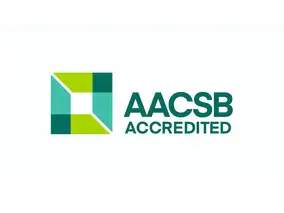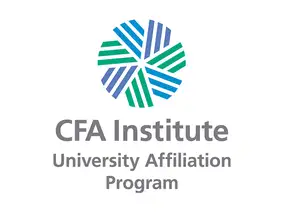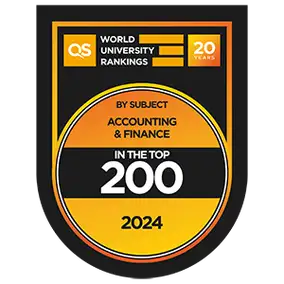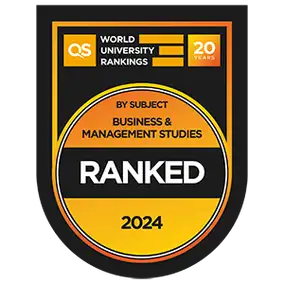Where you can study
International students
International students are not New Zealand citizens or residents.
Specialise in Finance for your Bachelor of Business at Massey
Finance and financial decision-making include determining what to invest in, how to pay or finance the investments and what to do with the money earned on those investments.
Real-world learning
As a BBus (Finance) student, you will have access to our state-of-the-art Trading Room. Here you will gain real-world experience in financial markets and financial assets including shares, bonds, foreign exchange, options and futures. Massey’s dedicated student investment fund can also provide you with real fund management experience.
Sound theoretical foundation
The BBus (Finance) will give you a sound theoretical foundation. You will develop your decision-making, logic and analytical skills to solve real business problems.
You will learn about financial markets and how they impact decision-making in organisations. You will also study the core finance areas of business finance, investments, financial institutions and markets, as well as risk management practices in these core areas. At a more advanced level, you can choose from courses in advanced business finance, international finance, investment analysis, financial risk management (futures and options) and banking.
Business fundamentals
When you graduate, you will be someone that has a sound base in the business fundamentals of accounting, economics, finance, management, marketing, law and communication. The skills gained will be valuable in many different types of businesses – in New Zealand and around the world.
Our lecturers are actively researching both nationally and internationally, bringing the most relevant developments in business theory and practice into your classroom.
Further study
Study options upon completion of this qualification could include:
A Bachelor of Business in Finance is a good fit if you:
- have an analytical mind
- want to help solve real world problems
- are interested in money and how financial markets work.
Planning information
The BBus provides considerable flexibility, enabling you to take control of your own qualification within the regulations.
If you study full-time, in your first year, you’ll take eight 15-credit courses, making a total of 120 credits.
If you wish to study over two semesters, you should aim for 60 credits per semester. You may be able to take some courses at summer school. Make sure you include courses that are prerequisites for the next level of courses you wish to study.
Core business courses
There are ten core business courses and you must pass at least eight of them. The core courses are 115111, 115112, 115113, 115114, 115115, 115116, 115211, 115212, 115230 and 115340.
You must pass at least 60 credits of 100-level core courses within the first 120 credits, and and at least 30 credits of 200 or 300-level core courses within the first 240 credits of study towards the degree.
These are courses which cover topics across the business spectrum. They are designed to give you the leadership, communication and solid business skills that you will need in your career.
In your first year
You must include course 115114 in your first year of study as you require this course to gain entry to one of your major courses.
Minors
Completing a minor is optional. Minors increase the breadth of your degree. They give you extra knowledge, attributes and capabilities.
A minor must be in a different subject from your major.
A Bachelor of Business (Finance) with a minor
You may choose a minor from any University undergraduate degree that has recognised minors. If the minor is from another undergraduate degree, the regulations of that qualification will apply.
A Finance minor (for students who are studying a different degree)
If you are not studying a Bachelor of Business (Finance) and wish to complete a minor in Finance see the BBus regulations for the requirements of this minor.
Official regulations
To understand what you need to study and must complete to graduate read the official rules and regulations for this qualification.
You should read these together with all other relevant Statutes and Regulations of the University including the General Regulations for Undergraduate Degrees, Undergraduate Diplomas, Undergraduate Certificates, Graduate Diplomas and Graduate Certificates.
Returning students
For returning students, there may be changes to the majors and minors available and the courses you need to take. Go to the section called ‘Transitional Provisions’ in the Regulations to find out more.
In some cases the qualification or specialisation you enrolled in may no longer be taking new enrolments, so may not appear on these web pages. To find information on the regulations for these qualifications go to the Massey University Calendar.
Please contact us through the Get advice button on this page if you have any questions.
Courses you can enrol in
Course planning key
- Prerequisites
- Courses that need to be completed before moving onto a course at the next level. For example, a lot of 200-level courses have 100-level prerequisite courses.
- Corequisites
- Courses that must be completed at the same time as another course are known as corequisite courses.
- Restrictions
- Some courses are restricted against each other because their content is similar. This means you can only choose one of the offered courses to study and credit to your qualification.
Core courses for the Bachelor of Business
As well as the specialisation courses listed below, this qualification has core courses that you will need to complete.
Bachelor of Business core courses
Finance courses
Compulsory courses
Course code: 125220 Financial Institutions and Markets 15 credits
An overview of the operation of institutions, products and markets which make up the financial system and discusses the role of governments, both domestically and internationally, in the management of our financial system.
View full course detailsCourse code: 125230 Business Finance 15 credits
The course provides students with a fundamental knowledge of financial theory and practice. In addition to valuation and capital budgeting, students will study working capital management, capital structure, the cost of capital, dividend policy and ethics in finance.
View full course detailsCourse code: 125241 Introduction to Investments 15 credits
An introduction to the fundamental and practical concepts of the investment process. Investment products, including equity, debt instruments, and derivatives are discussed as well as basic portfolio concepts.
View full course detailsCourse code: 125330 Advanced Business Finance 15 credits
A study of finance theory in practice, designed to facilitate effective corporate financial decision making.
View full course detailsCourse code: 125340 Investment Analysis 15 credits
The application of analytical techniques to investment decision-making.
View full course detailsSubject courses
Course code: 125250 Financial Modelling 15 credits
An examination of the principles of sound financial decision-making with the use of spreadsheets for analysis. Students will use various applications to perform quantitative analysis, assessing risk and return, and asset valuations.
View full course detailsCourse code: 125320 International Finance 15 credits
This course provides an overview of the theories and institutional environment of international finance. Students will gain insight into exchange rate determinations and instruments available for managing financial risk in a globalised economy.
View full course detailsCourse code: 125350 Financial Risk Management 15 credits
This course provides an overview of the theory and practice of financial risk management or hedging. Financial risk exposures can be categorised into three areas: interest rate risk, foreign exchange risk and commodity price risk. The focus will be on the methods of identifying and measuring the impact of these exposures and the appropriate instruments to hedge the firm's exposures.
View full course detailsCourse code: 125364 Bank Financial Management 15 credits
An application of finance and economic theory to the financial management and operation of banks globally, from a risk and regulatory perspective.
View full course detailsCourse code: 125388 CFA Examination Prep 15 credits
This course studies ethical issues related to Chartered Financial Analyst (CFA) level 1 examination and reviews and applies all core subject areas covered by the CFA level 1 examination.
View full course detailsEntry requirements
Admission to Massey
All students must meet university entrance requirements to be admitted to the University.
Specific requirements
There are no specific entry requirements for this qualification, outside of university admission regulations.
English language requirements
Competence in English is essential. If you are not confident in this subject we recommend that you undertake additional study prior to enrolling.
To study this qualification you must meet Massey University's English language standards.
English language skills
If you need help with your English language skills before you start university, see our English for Academic Purposes (EAP) courses.
Can't meet the entry requirements?
If you need to do a course before you start your qualification, there may be options for you in Summer School.
Fees and scholarships
Fees, student loans and free fees scheme
Your tuition fees may be different depending on the courses you choose. Your exact fees will show once you have chosen your courses.
There will also be some compulsory non-tuition fees and for some courses, there may also be charges for things such as study resources, software, trips and contact workshops.
- Get an estimate of the tuition fees for your qualification
- View a list of non-tuition fees that may be payable
Already know which courses you're going to choose?
You can view fees for the courses that make up your qualification on the course details pages.
Student loans (StudyLink) and Fees Free scheme
You may be eligible for a student loan to help towards paying your fees.
The New Zealand Government offers fees-free tertiary study for eligible domestic students. Find out more about the scheme and your eligibility on the Fees Free website. To use the site's eligibility checking tool, you will need your National Student Number.
Current and returning Massey students can find their National Student Number in the student portal.
- Student loans (StudyLink)
- Fees Free
- Student portal
Scholarship and award opportunities
Find more scholarships and awardsFees disclaimer
This information is for estimation purposes only. Actual fees payable will be finalised on confirmation of enrolment. Unless otherwise stated, all fees shown are quoted in New Zealand dollars and include Goods and Services Tax, if any. Before relying on any information on these pages you should also read the University's Disclaimer Notice.
Careers and job opportunities
A finance major will open many employment doors in corporate, investment banking, fintech, commercial or retail banking, financial services industry, financial planning, hedge funds, private equity and venture capital and insurance.
Careers include:
- securities analyst
- investment banking analyst
- portfolio or fund manager
- share broker, investment broker, financial trader, quant trader
- analyst for businesses, Reserve Bank and Treasury
- Chief financial officer (CFO)
- finance/commercial manager
- Capital investment manager
- Personal financial planner
- financial analyst
- bank manager and loan officer
- risk management officers
- actuary.
International students
New Zealand is a great place to study. Massey University’s reputation is supported by our international rankings, accreditations and associations. We are rated five star plus by the QS World University Rankings.
Massey University has small class sizes, and our lecturers and staff are friendly and approachable.
As an international student, there are entry requirements that will apply to you. We recommend that you apply at least three months before your anticipated start date so your application can be processed in time. There are additional steps you will need to take. These include obtaining a visa and travel bookings if your study is to be in New Zealand.
Accreditations and rankings

Association to Advance Collegiate Schools of Business (AACSB)
Massey Business School is rated in the top 5% of global business colleges by AACSB International.

Chartered Financial Analysts Institute (CFA)
Massey University is part of the Chartered Financial Analysts Institute's (CFA's) University Affiliation Programme.

QS Ranking – Accounting and Finance
Massey is ranked by QS (Quacquarelli Symonds) as one of the top 200 universities for accounting and finance.

QS Ranking - Business Management Studies
Massey University is ranked by QS (Quacquarelli Symonds) as one of the top 400 universities for business and management.
Related study options
Certificate in Financial Advice – CertFinAdvice
Gain introductory specialist knowledge and financial advice skills to prepare you for entry into the financial advice industry.
Finance – Master of Business Studies
Massey’s Master of Business Studies (Finance) will give you the business and finance skills to take your career to the next level.
Financial Advice – Diploma in Business Studies
With Massey's Diploma in Business Studies (Financial Advice) you'll gain introductory specialist knowledge and financial advice skills to prepare you for entry into the financial advice industry.
Financial Analytics and Research – Master of Finance
Massey’s Master of Finance (Financial Analytics and Research) combines the study of advanced finance theory and research to complete the qualification.
Financial Planning and Advice – Bachelor of Business
Help people make the best financial decisions for their future. Join a growing industry and study the only university financial planning and advice specialisation in New Zealand.
Personal Financial Planning – Graduate Diploma in Business Studies
Keen for a career in financial planning? By studying Massey’s Graduate Diploma in Business Studies (Personal Financial Planning) you can change the direction of your career.
Risk Analytics – Master of Finance
Massey’s Master of Finance (Risk Analytics) combines the study of advanced finance theory and completes the qualification with professional inquiry.
Useful planning information

Key information for students
Compare qualifications and academic information across different New Zealand institutions. Learn more on careers.govt.nz
